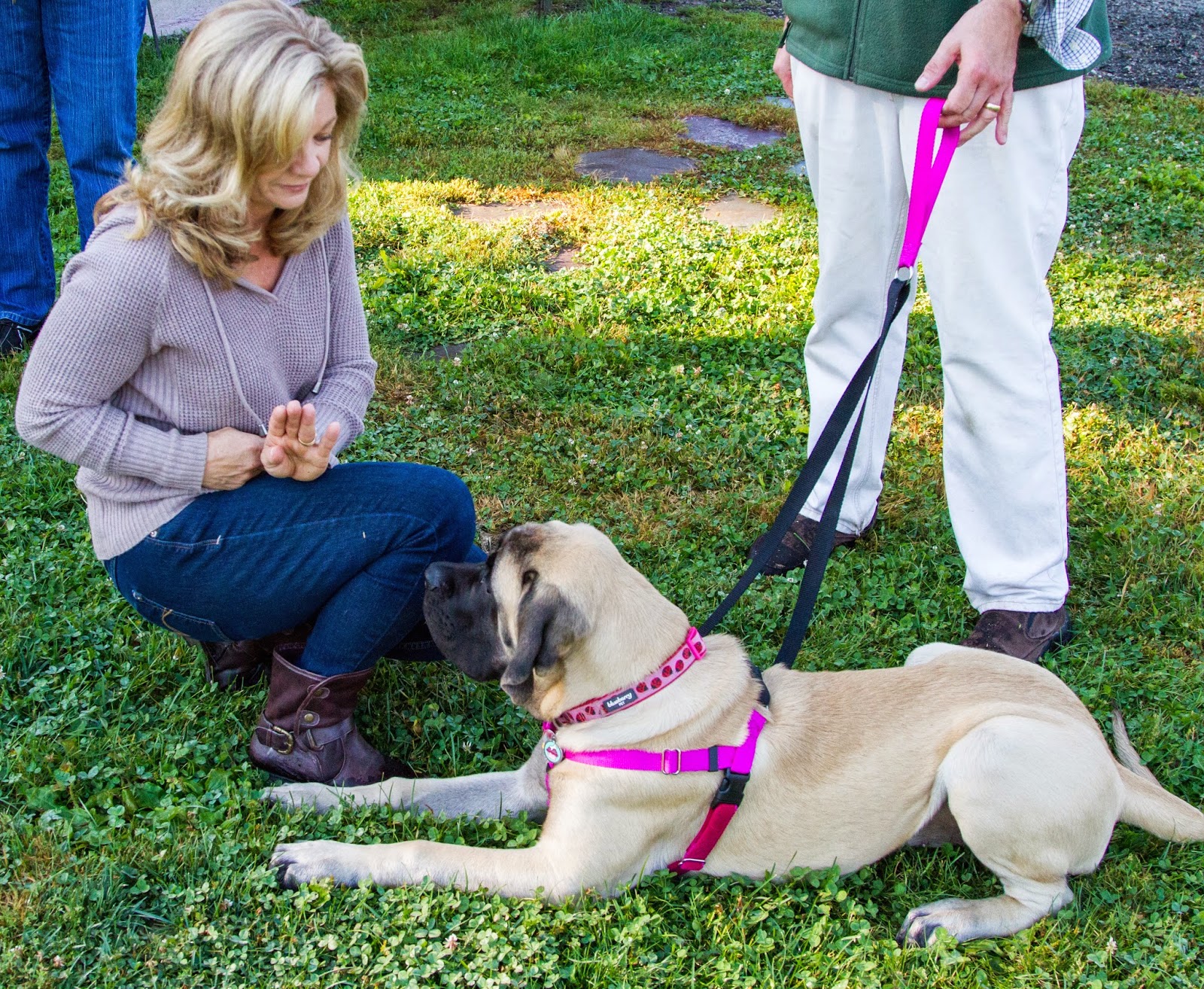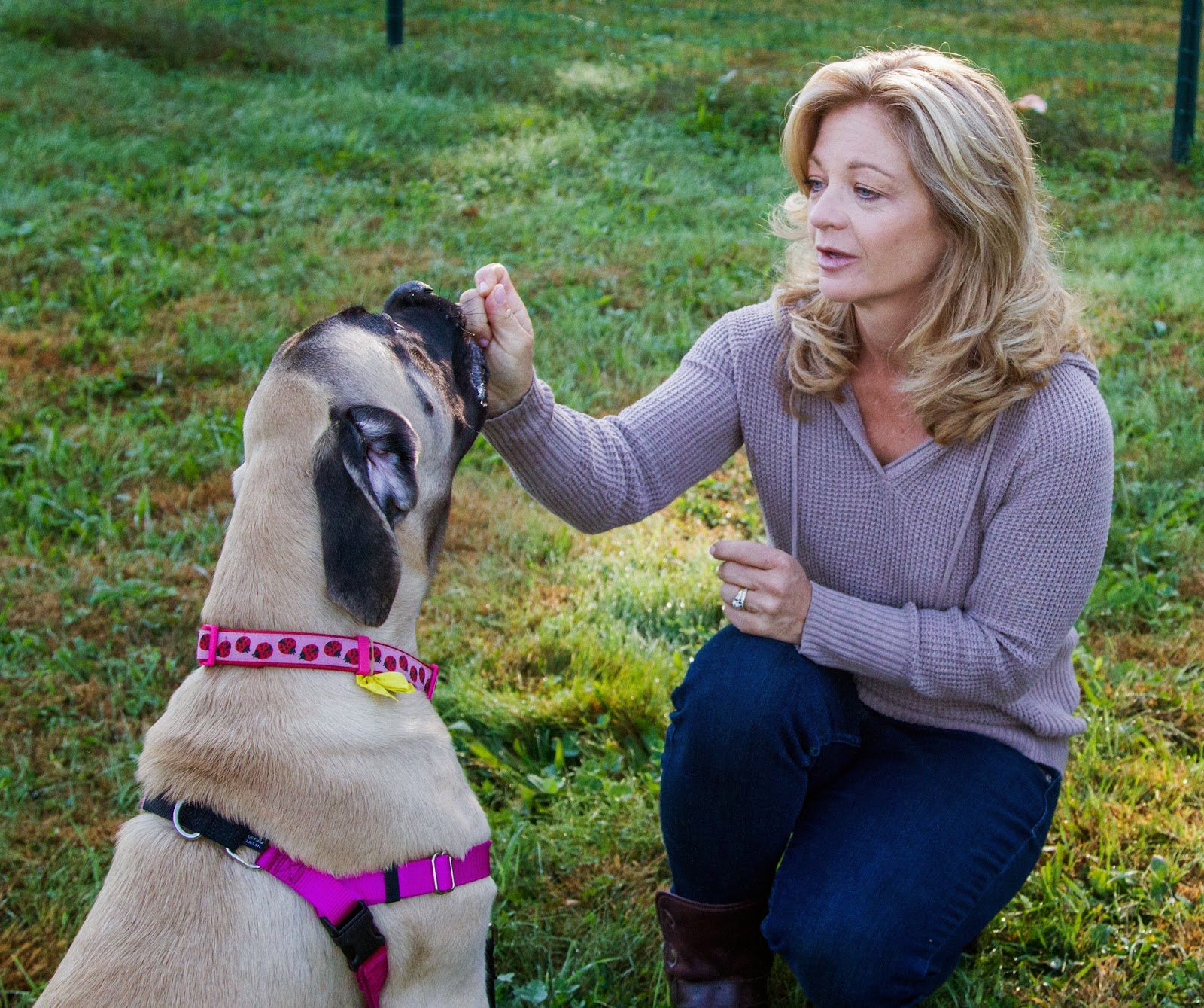 |
| 5 month Mastiff with excellent Emotional Control! |
Sadly, harsh training methods that are "too harsh for the dogs temperament" can create a dog that is afraid of strangers. Fear and stress associated with humans is a great recipe for Stranger Aggression as the pup matures. Ever wonder why adolescent dogs all of a sudden begin to growl or bite?
Keep in mind that dogs are emotional beings who will form a strong bond with the person who feeds and trains them. Shouldn't that person be you! Here are some helpful tips to set you and your pup up for success!
Keep in mind that dogs are emotional beings who will form a strong bond with the person who feeds and trains them. Shouldn't that person be you! Here are some helpful tips to set you and your pup up for success!
Always:
- Give your dog feedback to shape good habits. Example: when hand feeding a treat, if you feel teeth pull the treat away, do not reward a harsh mouth. Repeat by offering the treat until your pup only touches the treat or licks, then release and repeat many many times.
 |
| Does your dog have a soft mouth? |
- Reward good behavior with something the dog finds rewarding.
- Use your dogs meal to practice behaviors you want. This also teaches a soft mouth.
- Always reward an alternative behavior to the unwanted behavior.
- Have your dog do a calm behavior before you reward with affection, food or play.
- Do change your pitch when training your dog.
- Do use a marker if you want to bridge the communication between dog and human, such as a clicker or verbal "yes".
- Do play tug, which teaches a soft mouth. Start with a calm dog, then tug, drop it, sit, repeat. All our dogs learn this pattern in Star Puppy Class!
- Learn new theories and behavioral techniques from the best in the business, including Dr. Ian Dunbar, Karen Pryor, Patricia McConnell, Sue Sternberg, Suzanne Clothier, Terry Ryan, Bob Bailey, Pia Sylvani, Victoria Stillwell, Turid Rugaas, or from an APDT Certified Trainer.
Avoid:
- Using your hand in a negative manner, such as holding mouth closed, sticking fingers down her throat, and certainly you should never strike your dog! Unless, of course, you want your dog to associate "hands" as something to fear!
- Avoid holding your dog down, or making him submit, as this can have very negative consequences. If your dog cannot trust you, then he will not trust your friends and you will see a hyper, over-the-top appeasement greeting, growly behavior, or submissive peeing develop.
- Creating pain or fear in the process of giving feedback.
- Rewarding your dog if he jumps then sits, unless you always want him to jump before he sits.
- Looking, touching or even yelling at a dog for barking out the window, as this attention is rewarding to most dogs, hence they will do it more!
- Taking advice from friends and uncertified Dog Trainers who want to use a pinch or shock collar.
| Sophie comes when called because it always predicts good things! |
No comments:
Post a Comment